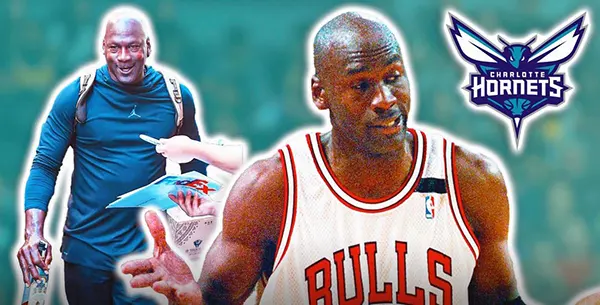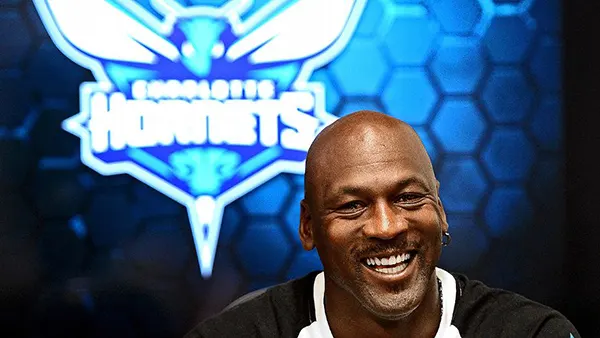
Michael Jordan as Owner of the Charlotte Hornets: Successes, Failures and Strategy
Michael Jordan, widely considered the greatest basketball player of all time, turned his legacy into ownership when he acquired a controlling stake in the Charlotte Hornets (formerly Bobcats) in 2010. While his tenure as an NBA owner spanned over a decade, Jordan’s time with the Hornets was met with mixed results. His impact was far from negligible, but the team’s trajectory under his leadership often drew scrutiny. This article explores the highs and lows of Jordan’s ownership and the decisions that defined the Hornets’ direction up to February 2025.
Ownership Vision and Initial Challenges
When Michael Jordan became the majority owner in 2010, he aimed to bring credibility and competitive success to a franchise that had long struggled. The Hornets, then still named the Bobcats, were coming off a losing season, and Jordan’s initial focus was rebuilding both the brand and the roster. He also helped orchestrate the team’s return to the “Hornets” name in 2014, reconnecting with the city’s NBA history.
Despite this rebranding and a renewed sense of identity, the team’s performance remained inconsistent. Jordan’s lack of front-office experience was evident in the early years, with several questionable draft picks and signings. The team often found itself stuck in the NBA’s middle ground — not bad enough for a top draft pick, and not good enough to contend.
Financially, Jordan was relatively conservative. The Hornets rarely pushed deep into luxury tax territory, limiting their chances to attract high-tier talent in a small market like Charlotte. This strategy, while fiscally sound, had competitive implications.
Early Draft Decisions and Player Development
One of the most controversial aspects of Jordan’s ownership was the team’s track record in the NBA Draft. From 2011 to 2017, Charlotte missed on several first-round selections, including names like Michael Kidd-Gilchrist (No. 2 pick in 2012) and Frank Kaminsky (No. 9 in 2015). These decisions held back the franchise’s development and frustrated fans hoping for a breakthrough.
However, there were notable successes, such as the selection of Kemba Walker in 2011. Walker would go on to become a franchise cornerstone and fan favourite. Jordan’s loyalty to Walker was well documented, though it arguably led to a short-sighted contract decision in 2019 when the team let Walker walk in free agency without securing equal talent in return.
In the later years, the Hornets’ drafting improved with the pick of LaMelo Ball in 2020, who quickly emerged as a young star and became the face of the franchise. The emphasis shifted toward developing younger talent, though injuries and inconsistency remained obstacles.
Business Growth and Market Relevance
While the on-court results were mixed, Jordan succeeded in making the Hornets a more viable business. Under his ownership, the franchise value grew significantly — from an estimated $275 million at the time of purchase to a reported valuation of $3 billion by 2023, when he sold a majority stake.
Jordan leveraged his global brand to attract sponsors, increase merchandising, and raise the profile of the franchise beyond Charlotte. The team’s aesthetics, including retro jerseys and community engagement, improved under his leadership, helping establish a stronger identity in the NBA landscape.
The Spectrum Center also became a more active venue, hosting All-Star Weekend in 2019, a move partially credited to Jordan’s influence. These events elevated the city’s visibility and helped the Hornets become more than just a struggling basketball team — they were a business success story.
Sale of Majority Stake and Exit Strategy
In June 2023, Jordan sold a majority interest in the Hornets to a group led by Gabe Plotkin and Rick Schnall, ending his run as the league’s only Black majority owner. He retained a minority stake, signalling a continued interest in the team’s future without being its primary driver.
The decision to sell aligned with increased pressure over the team’s performance and questions around Jordan’s leadership style. Analysts pointed to his tendency to rely on a close circle of advisers and former players, sometimes limiting the diversity of opinions in strategic planning.
By stepping back from the forefront, Jordan allowed for a potential shift in the Hornets’ management culture. Plotkin and Schnall have since focused on hiring external basketball minds and improving the organisation’s analytical infrastructure, which had lagged behind other NBA franchises.

Legacy and Long-Term Impact
Evaluating Jordan’s time as owner requires balancing business achievements with sporting outcomes. Financially, there is no doubt that his tenure brought substantial growth and elevated the profile of the franchise. However, from a competitive standpoint, the Hornets remained largely irrelevant in playoff discussions during his era.
Jordan’s legacy as an owner will likely remain polarising. While his name drew media attention and fan engagement, his decision-making — especially early on — often held the team back. The lack of deep playoff runs or star-studded rosters is a lasting critique of his leadership style.
Still, his commitment to Charlotte, efforts in rebranding, and investment in the community left a positive mark. The Hornets now stand on more stable ground, with a young core and fresh ownership vision aimed at long-term competitiveness in the Eastern Conference.
The Path Forward After Jordan
With new leadership, the Hornets are expected to place a stronger emphasis on analytics, player development, and long-term team-building. The organisation has already begun restructuring its front office and scouting departments, aiming to fix past missteps in drafting and development.
LaMelo Ball remains a central figure in the team’s future. Building around him with smarter signings and a more balanced roster is a priority. The team has also started investing more in health and performance technologies to reduce injury setbacks.
Jordan’s departure from majority ownership marks the end of a complex chapter in Hornets history. It’s a transition filled with both the hope of future success and the reflection on a legacy that, while imperfect, laid a stronger foundation for what comes next.
